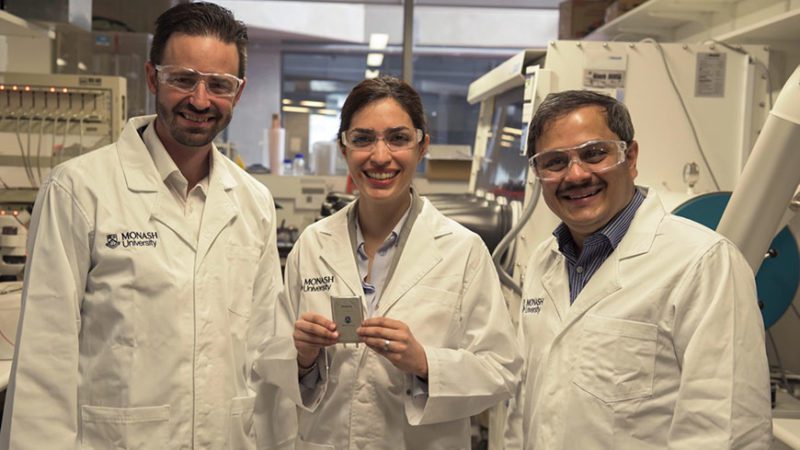A team of Australian researchers have developed new battery production methods that promise longer lasting batteries that could be used to boost the range of electric vehicles substantially.
In research published in the journal Science Advances, the Monash University led team applied techniques originally developed in the processing of detergent powders to discover a method of making more durable batteries using lithium-sulfur materials.
The researchers at Monash University think that using the new method can greatly improve the stability of the lithium-sulfur batteries that promise greater energy storage densities, and could unlock the production of higher performance and longer lasting battery systems.
Previous attempts to produce batteries using the lithium-sulfur materials, while offering greater energy storage densities, suffered from degradation in performance as the materials broke down under stress.
The Monash University research team has developed a new method to process the lithium-sulfur materials that provide a significant improvement in the stability of the materials.
The researchers predict the use of lithium-sulfur batteries could see a substantial increase in the range of electric vehicles, with the potential for new batteries to provide more than 1000km of driving range.
The battery technology could be used in a wide range of applications, including consumer products like phones.
The research was led by Monash University’s Dr Mahdokht Shaibani, who worked with an international research team on the development of the high capacity lithium-sulfur battery design. The research team intends to test working examples of the innovative battery design in electric vehicles and with solar energy systems throughout 2020.
Leading battery manufacturers in China and Europe have already expressed interest in producing the new battery innovation at large-scale.
The research team included scientists and engineers from Monash University, the CSIRO, and researchers based in Germany who worked on the successful fabrication of the batteries at the Fraunhofer Institute for Material and Beam Technology.
The researchers have already secured a patent for the new manufacturing process, with Monash University professor Mainak Majumder saying the new battery chemistries could tap into a surging market for battery storage and Australian lithium resources.
“Successful fabrication and implementation of Li-S batteries in cars and grids will capture a more significant part of the estimated $213 billion value chain of Australian lithium, and will revolutionise the Australian vehicle market and provide all Australians with a cleaner and more reliable energy market,” professor Majumder said.
“Our research team has received more than $2.5 million in funding from government and international industry partners to trial this battery technology in cars and grids from this year, which we’re most excited about.”
Associate Professor Matthew Hill is confident that the new battery design could see lower cost battery systems with higher performance compared to current commercially available batteries, with the additional benefit of a lower environmental footprint.
“This approach not only favours high performance metrics and long cycle life, but is also simple and extremely low-cost to manufacture, using water-based processes, and can lead to significant reductions in environmentally hazardous waste,” Hill said.
In November, researchers at the University of Wollongong published findings that showed the potential for sodium-sulfur batteries to drive down the cost of battery storage using abundant materials.
The Wollongong based researchers turned to nanomaterials to solve similar material stability challenges in the sodium-sulfur battery designs.


